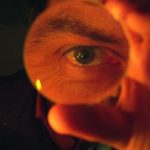Finding a dead animal can be terrifying and dangerous. A dead animal is never a good sign, whether it’s thanks to old age or a more sinister cause. It’s an even worse sign when it comes to taking care of what’s left, removing and disposing of a carcass safely and correctly.
Dead animals transmit diseases, have a terrible smell, carry pests, hold hygiene issues, and transfer some nasty things to you. Therefore, it’s essential to be safe and smart when removing a dead animal, so this is what to do if you find a dead animal in your home.
Make Sure There’s Nothing Else Around
The very first thing you should do is make sure that there’s just a dead animal. Any animal feeding on it or having been behind an attack can pose more danger to you, on top of the risk of being around a dead animal.
Ensure that the area is secured before you do anything else, checking around and staying a decent distance away from the animal. While you don’t get too close to the dead animal, you want to ensure that it isn’t faking its death. Otherwise, you could be put at more risk.
Decide If You Can Remove It
Even though it seems simple in concept, removing a dead animal is anything but. There’s the danger of getting infected, leaving behind contaminants, exposing yourself, attracting other pests, and much more. You likely have all the skills needed to remove it, but the tools required are another question.
If possible, wearing a mask, safety suit, gloves, and whatever else you can get is excellent. Although dead animals can theoretically be removed via shovel, it’s important to remember that this option isn’t an option if it’s within a wall or other space. You can likely scoop up the animal in the open, then dispose of it before cleaning up behind.
Otherwise, you’ll likely have to do something, like reach out to an expert at norcalwildliferemoval.com for dead animal removal. Most wildlife removal companies will remove both live and deceased animals, although it’s essential to check before expecting too much.
Dispose Of It Safely
If you’re sure you can take care of the dead animal, then suit up and get ready to work. As mentioned, most animals can be quickly scooped up and removed, although it’s important to dispose of them safely.
When it comes to this step, get the body to a safe space, either in/on a trash bag or other area, then call your local department of sanitation. Once you get through, see if there’s the chance for you to get deceased animal pickup. The city should then send someone to pick up and dispose of the animal for you.
Otherwise, if you can’t have the DoS pick it up for you, contact the professionals and safely remove the animal. While it likely costs more to have a team come in and remove a dead animal, it’s also much safer, and there’s less potential for costs to come back down the road.
Cleaning Up
After all, once things are completed, there’s still work left to do. Dead animals carry diseases and all sorts of nasty things, meaning that you’ll need to either have a team clean up after you or you’ll need to clean up yourself.
It’s obviously easier to have someone clean up after you, as they have the chemicals, tools, and expertise to remove bio-contaminants, although you can still do the same job with enough effort. You need to remember that you’re always at risk when around dead animals, meaning that the proper safety equipment is essential.
After being suited up and removing (and disposing of the animal) safely, then you’ll need cleaning chemicals. Usually, these are enzymatic cleaners or chemicals that use enzymes to kill the germs and bacteria left behind. When using these, it’s necessary to ensure everyone nearby has a respirator on, a mask to protect their eyes, and no exposure to the chemicals.
There’s the need to remove physical contaminants left behind, making sure that everything is incredibly sanitized and clean before even considering going to that area without protective equipment. Even after a while, diseases and parasites can still thrive, meaning it’s essential you get this right the first time.
Dead Animals are Dangerous
Just remember through all of this, that dead animals are hazardous. It’s possible to take care of everything yourself, although there are several steps and safety precautions to ensure that you’re doing everything correctly.
Personally, it’s recommended to not take care of dead animals by yourself unless you have the experience, tools, chemicals, and processes ready to go, although it’s still possible. It’s easier, simpler, and safer to have someone else do it for you, although it’s understandable if that’s not an option. It’s just important to remember to be safe and careful when around a dead animal.
Related Posts












